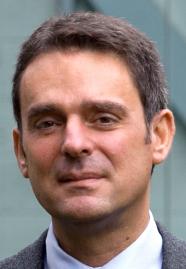Michael Carus: How has the environment for the Renewable Carbon Economy evolved during the Corona pandemic, climate change and GreenDeal and the Ukraine war? (in terms of demand and investment)

Stefano Facco: The COVID-19 crisis has contributed to an even greater alert on the issue of climate change and the devastation of Natural Capital, giving a further acceleration to the European Green Deal. In contrast, the war on Europe’s doorstep is once again demonstrating the negative effects of our dependence on fossil energy and raw materials from the rest of the world, highlighting the need to further accelerate our path toward a renewable carbon economy. Bearing this situation in mind, it is important not to waste what has been built up to now in Europe and our technological advantage, by favouring investment in this sector, starting from the recognition of its value from an economic, environmental and social point of view, and also by looking more critically at imports from countries which do not fulfil the same environmental, social and economic standards taking therefrom a great advantage when exporting goods into Europe cause they are not subject to stringent European regulations in terms of CO2 emissions and energy consumption.
Michael Carus: Are there market preferences for any of the three sources of renewable carbon? Biomass first and second generation, biogenic waste, utilisation of CO2 from biogenic and fossil sources and direct air capture or mechanical and chemical recycling?
Stefano Facco: In the current political and economic context, and of scarcity of raw materials, second generation biomass, biogenic waste, utilisation of CO2 from biogenic and fossil sources and direct air capture are all resources for which there is not only great interest, but above all numerous ongoing projects and existing technologies. The same applies to chemical and mechanical recycling, technologies that are increasingly in demand, but which should be supported by the development of appropriate infrastructures and appropriate EU legislation on this matter.

Michael Carus: What would be the most important measures and policy instruments to accelerate the transformation from fossil to renewable carbon?
Stefano Facco: The European Commission has been instrumental in encouraging large private and public investments in the sector, but there still seem to be contradictory elements at the regulatory level. For instance, the lack of specific NACE codes is still preventing the full implementation of the circular bioeconomy, by hindering the exploitation of valuable byproducts. Overcoming obstacles and bottlenecks will be vital to accelerate the transformation from fossil to renewable carbon economy. Towards this path, we propose to update the list of EER codes, avoiding to waste substances such as high quality sludge and environmentally expensive disposal; to eliminate CO2 payments for the production of valuable bio-products as catalysts for the redesign of the system in a circular key; to equating the plastic percentage of recycled content with the percentage of renewable content and to encourage the spread of sustainable agriculture, promoting carbon farming practices and speeding up the authorisation of low-impact molecules from renewable sources.
Michael Carus: Thank you so much for the interview.
Meet Stefano Facco at the Renewable Materials Conference 10 – 12 May 2022, Cologne, Germany (hybrid event) and look forward to his presentation „The Vertical Integration of Biorefineries“ on the 1st day!
More information: https://renewable-materials.eu
Source
nova-Institute, press release, 2022-05-05.
Supplier
nova-Institut GmbH
Novamont S.p.A.
Share
Renewable Carbon News – Daily Newsletter
Subscribe to our daily email newsletter – the world's leading newsletter on renewable materials and chemicals










